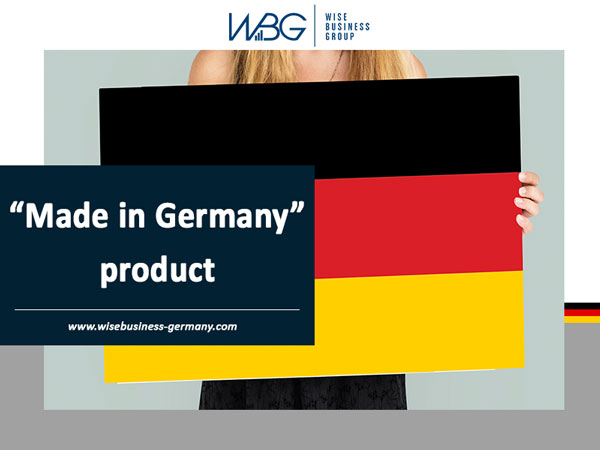“Made in Germany” product

Legal form in Germany
March 4, 2024
The new immigration rules in Germany
March 19, 2024How is it possible to have a product under the title of “Made in Germany”? what are the requirements? These are some of the questions our clients frequently ask us when deciding to register a company in Germany. Here in Wise Business Group, we discuss the provision for “Made in Germany” product.
Requirements for the provision of the “Made in Germany” product
Many who plan to register a company in Germany always think of bringing a part of their supply chain to Germany and branding a product that they can sell as a “Made in Germany” product, but what in reality makes your product carry this title? In other words, what requirements must retailers and manufacturers meet in order to be able to sell the product under this label.
For consumers, the “Made in Germany” seal is synonymous with high quality. Many people think of German engineering, creativity, advanced technical standards and reliability. For this reason, consumers are willing to pay more for such a product. Therefore, it is very attractive for many manufacturers to use this label for their products.
Value chain as an important indicator
The production process is very important here. Basically, the name “Made in Germany” requires production in Germany. Therefore, the most important components of a product’s production, such as development, design, production, and quality assurance, must be done in Germany.
Legal basis for Made in Germany product
Interestingly, there are no transparent regulations on how high the proportion of the German-made value chain should be, neither in Germany nor in Europe. However, some German court rulings in recent years provide legal guidance on the use of the Made in Germany label.
The Higher Regional Court of Stuttgart started working in this area in 1995 and established the relevant criteria for the designation of German manufacture. In 2002, the Stuttgart District Court recorded this judgment.
Important factors for “Made in Germany” product
The following three aspects are very important for Made in Germany product:
- Significant production in Germany
- Final assembly in Germany
- An important contribution to value creation in Germany
You can purchase a few individual components abroad if they are not critical to the key properties of the final product. This means that if your final product has a part that determines the nature of that product, using the “Made in Germany” label may have legal consequences. Therefore, the base of the value chain should be in Germany. Of course, this chain does not contain the raw materials due to the insufficiency of some resources inside Germany and the resulting dependence on imports.
A review on “Made in Germany” label provision
“Made in Germany” label is somehow equals a guarantee for high quality products. To sum up, for using this label, you should follow some rules:
- Your production process including development, design, production and quality assurance must be done in Germany.
- The parts determine the nature of your products should be made in Germany. In other words, the base of value chain should be in Germany.
For more information, you can contact us via WhatsApp below.
Also, you can fill out the following form and send it to us to have an online counselling session.



